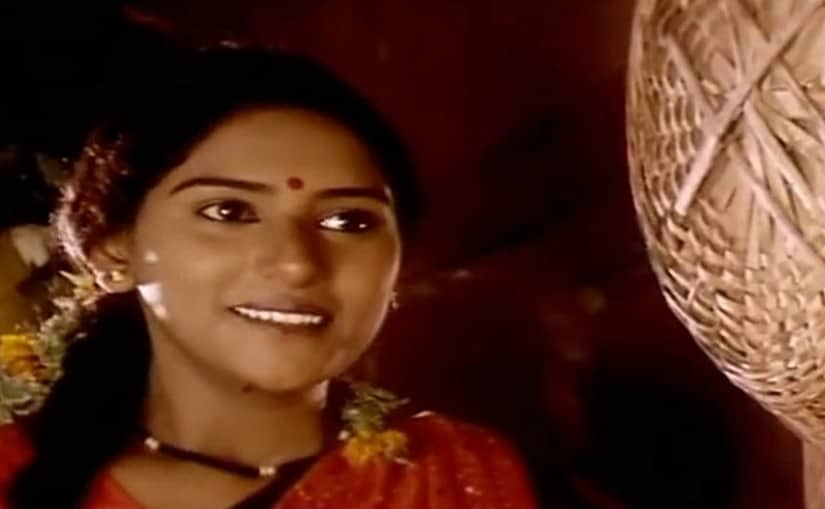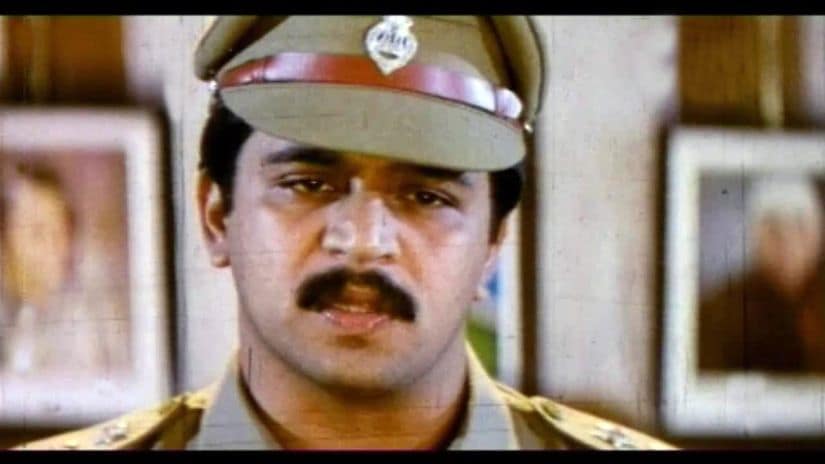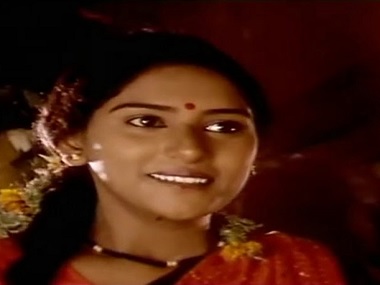1994 was the year of music in Tamil cinema. Here is the proof: Lyricist Vairamuthu, and playback singers Unnikrishnan and Swarnalatha picked up National Awards. Swarnalatha, who died prematurely in 2010 at the age of 37 after having sung nearly 7,500 songs, won for her heartbreaking rendition of ‘Porale Ponnuthayi’ while Unnikrishnan took home the award for the soulful ‘Ennavale Adi Ennavale’ and ‘Uyirum Neeye’. All three songs were scored by AR Rahman, showing how dominant he was during the year. Rahman’s scores for films like Kadhalan (Lover), Karuthamma, Duet and Pavithra took his already soaring reputation to new heights. The movies too matched up beautifully. Bharathiraja’s Karuthamma, a deftly directed, artful take on the evil of female foeticide, was given the National Award for Best Film on Family Welfare. The film is credited with raising awareness on the issue and making way for the ban on prenatal sexual identification. “Directors like Bharathiraja and Balu Mahendra were great masters. They had a world vision. Even when their films failed, they kept experimenting. They had social concerns. I feel movies today have become preachy. Directors arrive on the scene with a predetermined stand on issues,” said writer Devi Bharathi, who also watches movies keenly and has frequently written about them. [caption id=“attachment_4776271” align=“alignnone” width=“825”]  A still from Karuthamma[/caption] However, there was good news too. Kamal Haasan seemed to be mixing prestige pictures with outright commercial ones. Collaborating with National Award-winning director KS Sethumadhavan and writer Ananthu, Kamal made Nammavar, that dealt with urgent issues faced by students in Tamil Nadu. The film went on to win the National Award for Best Feature Film in Tamil. Actor Karan delivered a tour-de-force as a manic, drug-addicted student. Choreographer Brinda made a much-noticed cameo-of-sorts. But it was Nagesh and his extended monologue after the suicide of his daughter that was the most riveting. Appropriately enough, he was named the Best Supporting Actor at the National Awards. Films did not limit themselves to solemnity. The reliable comedies by the Goundamani-Senthil duo became crassier and more successful, at least in commercial terms. Films like Sethupathi IPS, Nattamai and Jai Hind owe a part of their popularity to their comedy tracks. However, there was a paradigm shift from the comedy of NS Krishnan, Chandrababu, Nagesh and Baliah. The duo of Goundamani-Senthil made comedy that came with its own track. The comedians, though indispensable, played characters having only a negligible relationship with the protagonists, something that became common in the 1990s. Meanwhile, Vadivelu was not wasting any time. His turn as a college student Kaliyaperumal alias Vasanth in Kadhalan had movie-goers in splits. Nagesh’s muted performance as a dead body in Magalir Mattum, perhaps, is the most cherished of the comedy performances of 1994. Magalir Mattum had a story from Kamal Haasan adapted into a screenplay by Crazy Mohan. With the sure touch of Singeetham Srinivasa Rao at the helm of affairs, surely nothing could go wrong, and it did not. “Technology has improved sooo much,” right? Nattamai struck a chord with audiences, especially in rural areas. Director KS Ravikumar, along with actor Sarath Kumar, became darlings of the middle-aged women folk. For a while, it looked like filmmakers would not stop making the same movie again and again. But actress Kushboo’s seductive swaying to the tune of ‘Kotta Pakkum’ simply could not be captured again (no, not even by Ravikumar). For months at that time, even people who had not even watched the movie could be heard saying stuff like “Nattamai, Theerpa Mathu (Chieftain, Change Your Diktat)’. Ravikumar’s fluffy, easygoing commercialism would later land him jobs of directing Haasan and Rajinikanth. Kadhalan, which was obviously a love story, improbably had Girish Karnad, a theatre personality of repute, playing the Tamil Nadu Governor trying to plant bombs in his own state. This was probably the first time a film featured a father (an excellent SPB) cheering up his son (Prabhu Deva promising more than he ever delivered) by sharing a glass of beer with him. Director Shankar, with the able assistance of Rahman, managed to capture the zeitgeist, particularly that of the college going crowd, that won both of them Filmfare Awards. However, the film was criticised for lack of a focused plot line or message. The onus had shifted from having a core story to writing a competitive screenplay with attractive dialogues. “We are yet to experiment with non-linear narration in a major way though movies like Vazhakku Enn 18/9 dealt with it,” Bharathi said. P Vasu’s Sethupathi IPS, starring Vijayakanth and Meena, had a pretty juvenile take on combating terrorism, but that just seemed what the doctor ordered. Audiences flocked to the movie, making it one of Vijayakanth’s biggest hits of the decade. I will say no more. Vijay, Ajith, Murali, Prashanth, Sarath Kumar and Parthipan kept making movies without making much of a mark. So it was up to Napoleon, directed by Prathap Pothan, to play the knight in shining armour and rescue us from tedium by starring in Seevalaperi Pandi, which was based on a real story. Set in Tirunelveli and surrounding villages, the movie was a high quality thriller brimming with dramatic moments. Prior to the movie, Anandha Vikatan had published a book of the same name and the publishing house’s massive marketing push made the suspenseful tome a huge success. Today, many of these movies may not stand up to scrutiny. In fact, some of them have been forgotten. A few have not even found their way into the daily grind of television. Streaming services too have forgotten them (YouTube does show unofficial versions of some films). And, to boot, using DVDs has been relegated to the dinosaurs. So what chance do these movies have? Were these films important enough to be kept alive all? P Vasu, Singeetham Srinivasa Rao and Santhana Bharathi, all celebrated directors of the 1990s, do not seem to find favour with this generation of moviegoers. Even the ever-reliable KS Ravikumar is slipping lately. If we are not careful, we might lose some of the lesser known movies from that decade forever. Back to 1994 then: Superstar Rajinikanth made Veera, forcing director Suresh Krissna to move away from his shtick and deliver a pointless comedy in which the hero ends up living with two women, played by actresses Roja and Meena. But Ilaiyaraja, perhaps stung by growing popularity of Deva and Rahman, had other plans. He delivered an album that sold in record-breaking numbers. Once again, the music had to make something of the movie. Amaidhi Padai is, in popular consciousness, a movie on politics, but it was also an excuse for director Manivannan to push through his rational agenda. Starring in dual roles, Sathyaraj would, in later years, struggle to top the performance he delivered in this cult classic. The movie was a satire on the politics of those times. Jai Hind managed to rev up Arjun’s faltering career. Invoking a strong dose of patriotism, the movie, which Arjun wrote and directed, went on to achieve a fair amount of success at the box office. The image of Arjun as a terror-fighting nationalist hero was probably cemented by this movie. [caption id=“attachment_4776301” align=“alignnone” width=“825”]  Arjun in a still from Jai Hind[/caption] I remember walking out of Thangam Theatre in Nagercoil, my shirt drenched (poor ventilation and no air conditioning), and feeling sorry for K Balachander after watching Duet. The director, so famous in the 1970s and ’80s, seemed to have lost his Midas’ touch. Featuring Prabhu and Ramesh Aravind as brothers in love with the same girl, played by Meenakshi Seshadri, Duet is remembered today for Rahman’s music and Kadri Gopalnath’s mellifluous playing of the flute. “Balachander’s earlier movies spoke of important issues like equal rights for women. He had a progressive and radical vision. Perhaps, he lost his way,” said Bharathi. Prabhu’s 100th movie, Rajakumaran, that released amid a lot of hype as can be expected, flopped at the box office. Worse, even the critics were harsh in their dismissal of the movie. RV Udayakumar, who was roped in to direct the movie, did not deliver a hit in the end. May Madham (The Month of May) must have really worked on paper. Though the film ultimately flopped, top artists of the day worked on it. The film had music by Rahman, cinematography by PC Sreeram and art direction by Thotta Tharani. It had a decent story: Sandhya, played by Sonali Kulkarni, runs away from home to Chennai in order to escape a marriage. She meets Eeshwar (a dapper-looking Vineeth) in Chennai and predictably, falls in love even though he owes quite a large sum of money to her. The aforementioned movies can be, in one way or another, put on your films-to-watch list. Let us do a brief comparison of the movies from 1994 to the ones today. Sex and violence are represented quite differently today than in 1994. In the last 25 years or so, society has changed rapidly and films have tried to catch up with this transformation. Moral values have undergone a sharp change. Criminal activities are no longer restricted to the villain; heroes too cover up crimes like in the recent movie Papanasam. But the sexuality of women continues to be misrepresented. Even if directors are aware of the change in attitudes of women, they are hesitant to commit it to screen. The issue of ‘karpu (chastity)’ continues to haunt Tamil cinema with certain family values still remaining sacrosanct. Times have changed and so has what constitutes entertainment. If our movies tell us more about ourselves, they would do justice to the time and money we spent on them. All images from YouTube.
1994 was a golden year for Tamil cinema since it gave the audience hits like Karuthamma, Kadhalan, IPS, Seevalaperi Pandi, Amaidhi Padai and Jai Hind.
Advertisement
End of Article


)
)
)
)
)
)
)
)
)



